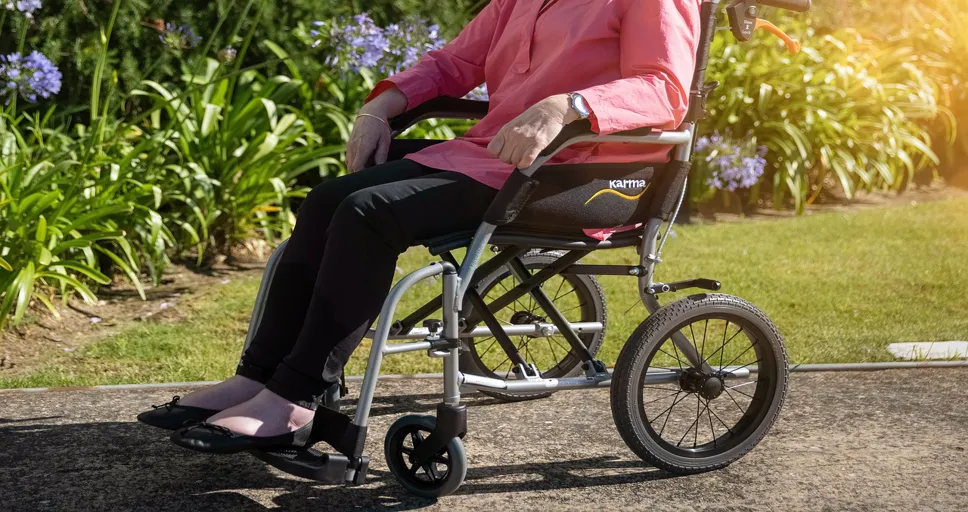Can a French Bulldog be a service dog? Well, why not? When you think of a service dog, you might imagine a majestic German Shepherd or a sturdy Lab with a vest, striding confidently through a crowded airport. But what about those lovable, bat-eared Frenchies? They might not fit the traditional image, but let’s not count them out just yet.
French Bulldogs have taken the world by storm, climbing up the popularity charts not just for their adorable looks but for their charming personalities too. So, the idea of a French Bulldog as a service dog isn’t as far-fetched as it sounds. In this article, we’ll delve into whether these compact bundles of joy have what it takes to don the service dog vest, looking into their temperament, trainability, and physical attributes to see if they can meet the demanding requirements of a service role.
- French Bulldogs can be service dogs, particularly in roles that require emotional support rather than physical tasks, due to their affectionate nature and ability to form strong human bonds.
- Training a French Bulldog for service includes:
- Basic Obedience Training: Teach commands like sit, stay, and come through short, positive sessions using treats and praise.
- Specialized Task Training: Tailor training to the specific service role, using repetition and positive reinforcement.
- Socialization and Public Access Training: Expose them to various environments early on to ensure they’re comfortable in different settings.
- Keep training sessions engaging and adapt to the French Bulldog’s slower learning pace and physical limitations, like their breathing issues.
Table of Contents
Evaluating the Suitability of French Bulldogs as Service Dogs: Can a French Bulldog Be a Service Dog?
So, you’re pondering whether a French Bulldog can be a service dog. At first glance, their small stature and snorty breathing might make you think they’re more suited to be lap dogs than lap around town as service dogs. But let’s dig a little deeper and not judge a dog by its cover—or in this case, its snout.
First off, let’s talk demeanor. French Bulldogs are known for their easy-going and affectionate nature. They adore human interaction and often form incredibly strong bonds with their owners. This emotional connectivity is a big checkmark for any service dog. After all, the essence of a service dog’s role is to be responsive and tuned into their handler’s needs, whether that’s detecting a medical anomaly like low blood sugar or providing emotional support during high anxiety moments.
Next up: trainability. Frenchies, bless their hearts, aren’t exactly the valedictorians of the dog world when it comes to obedience. They have a stubborn streak that can make training them something of a comedic but rewarding sitcom episode. However, with consistent, positive reinforcement training techniques, these little comedians can learn essential tasks. The key is patience and finding what motivates them (hint: treats work wonders).
Physicality is another factor. French Bulldogs are compact, which can be an advantage in certain contexts like navigating tight urban environments where a larger dog might be cumbersome. Yet, their notorious health issues, particularly those affecting their breathing, can limit the intensity and duration of the activities they can perform. While they might not be suited for physically demanding tasks, their size and demeanor can make them excellent for roles that require less physical exertion but high emotional intelligence.
Let’s be real: asking “Can a French Bulldog be a service dog?” might get you varied responses depending on who you ask. But under the right circumstances, with the right training, and within certain limitations, French Bulldogs can indeed provide valuable service dog duties, especially in roles that capitalize on their strengths—like bringing smiles to faces in a hospital room, which, if you ask me, is a pretty superhero thing to do.
Training Requirements for French Bulldogs
When you’re wondering whether a French Bulldog can be a service dog, you can’t help but think about training. Ah, training a Frenchie. It’s like trying to teach philosophy to a class of kindergartners—rewarding but with a lot of puzzled looks and snack breaks.
French Bulldogs are indeed capable of learning complex tasks, which is essential if they are to succeed in service roles. The training process for a Frenchie to become a service dog involves a few more quirks and comedic pauses than you might encounter with more traditional service breeds.
Basic Obedience Training
First things first: Basic obedience. This includes commands like sit, stay, come, down, and heel. For French Bulldogs, this training should start as early as possible because their attention span tends to wane as the training session stretches on. Short, engaging, and positive training sessions are key. Remember, Frenchies respond better to praise and treats than to stern commands. Think of it as less of a drill sergeant and more of a friendly coach who’s really into pastries.
Specialized Task Training
Once your Frenchie masters the basics, it’s time to move on to more specialized tasks. Depending on what you need your French Bulldog service dog to do—like alerting to specific sounds or providing emotional support—you’ll need to tailor your training sessions to these needs. This specialized training involves repetition and positive reinforcement, and just like in high school, every dog learns at its own pace.
Socialization and Public Access Training
Can a French Bulldog be a service dog without proper socialization? Absolutely not! These dogs need to be comfortable in various environments: bustling streets, quiet libraries, crowded buses—you name it. The goal here is to expose them to as many different situations as possible while they’re young. Positive experiences during these outings are crucial to prevent a service dog from becoming reactive or overly protective in unfamiliar settings.
In conclusion, while French Bulldogs may not be the first breed you think of for service dog work, they can be trained to perform specific tasks effectively. The journey might be filled with a few more hiccups and laughter than training, say, a Golden Retriever, but that’s all part of the charm with these little clowns. After all, who says you can’t mix a little fun into the serious business of service dog training?
Benefits and Challenges

When considering whether a French Bulldog can be a service dog, it’s like weighing whether to have a chocolate cake for breakfast—there are some undeniable benefits but also a few sticky challenges. Let’s break it down.
Benefits: The Sweet Side
French Bulldogs are like little bundles of joy that can lighten up even the gloomiest days. Their compact size makes them excellent companions for indoor environments and small living spaces. This is particularly advantageous in urban settings where a larger service dog might feel like bringing a bull into a china shop.
Their loving nature is another big plus. French Bulldogs form strong bonds with their owners, providing emotional support just by being their adorable, snorty selves. This emotional connection can be particularly beneficial for individuals dealing with anxiety or depression, proving that sometimes the best medicine is a happy face with a squished nose.
Moreover, their low-energy demeanor (except for their bursts of zoomies) means they’re generally less demanding in terms of exercise. This can be great for individuals who might find the high energy needs of more traditional service dogs overwhelming.
Challenges: The Not-So-Sweet Side
However, the question remains: can a French Bulldog be a service dog without facing significant hurdles? Their brachycephalic (flat-faced) nature leads to notorious respiratory issues, making them less suitable for physically demanding tasks. If you need a dog that can run long distances or handle intense physical activity, a Frenchie might just look up at you and say, “You’ve got to be kidding!”
Training a French Bulldog also presents unique challenges. Their stubborn streak can make the training process longer and require a truckload of patience and perhaps an equally large pile of treats. They’re not the quickest learners in the canine world, so expect some repetition—and maybe some comedic relief along the way.
Lastly, French Bulldogs are prone to various health issues, not just with their breathing, but also their joints and back. These health challenges can lead to higher medical bills and might require special considerations and adjustments from their handlers.
In essence, while French Bulldogs can indeed serve as service dogs in certain contexts, potential handlers should be prepared for a mix of delightful benefits tempered by some considerable challenges. Whether a Frenchie can be your service dog might just depend on your specific needs and a willingness to adapt. And a sense of humor—definitely a sense of humor.
- French Bulldogs are popular not only for their looks but also their endearing personalities, making the idea of them as service dogs conceivable.
- They exhibit strong emotional bonds with owners and an easy-going nature, essential traits for service dogs.
- Training French Bulldogs requires patience due to their stubbornness, but they can learn essential tasks with consistent, positive reinforcement.
- Their compact size benefits navigation in tight spaces, though their health issues, like breathing problems, may limit physically demanding roles.
- Under the right conditions and with tailored training, French Bulldogs can excel in service roles that utilize their strengths, such as providing emotional support.
Frequently Asked Questions
Do French Bulldogs help with anxiety?
French Bulldogs can provide emotional comfort and companionship that helps alleviate anxiety for their owners. They are known for their affectionate and calm nature.
Is a bulldog a service dog?
Bulldogs can be trained as service dogs, but they are not commonly used in this role due to their physical limitations and breathing difficulties. More commonly, breeds like Labrador Retrievers and Golden Retrievers are used as service dogs.
Conclusion

Wrapping up, the burning question: Can a French Bulldog be a service dog? It’s a bit like asking if a scooter can be a race car. Sure, under the right circumstances, with a few modifications (and maybe a dash of unrealistic optimism), it could sort of work.
French Bulldogs, with their lovable nature and manageable size, have some clear advantages as companions and potential service animals, particularly in roles that require less physical exertion and more emotional support. They’re phenomenal at providing comfort and joy, often with just a goofy smile or a well-timed snort. For those living in smaller spaces or needing a service dog that can handle the cozy corners of urban living, Frenchies could be just the ticket.
However, their physical limitations and health concerns are significant hurdles. Their charming but squished faces lead to breathing challenges, and their adorable stout bodies aren’t exactly built for endurance or heavy physical tasks. Training a Frenchie to be a reliable service dog also requires a heap of patience, a sprinkle of creativity, and an oversized scoop of humor.
So, can a French Bulldog be a service dog? Yes, but with a few caveats. They might not be the traditional choice, and they’re certainly not suitable for everyone or every service role. But for those who feel a Frenchie fits their personal circumstances and can handle the associated challenges, these dogs can indeed be more than just a furry friend—they can be a true service companion.
It comes down to matching the right dog with the right job and the right person. Just remember, while not every Frenchie will bring home the gold as a service dog, they’ll definitely win first place in stealing hearts. And isn’t that what a true companion does best?